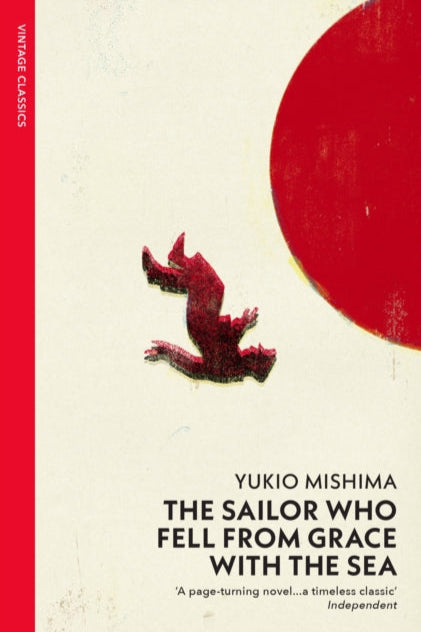Yukio Mishima
Yukio Mishima was one of Japan’s most provocative and influential writers, with novels like The Temple of the Golden Pavilion and Spring Snow delving into themes of desire and existential struggle. Nominated for the Nobel Prize in Literature five times, Mishima’s life ended in dramatic circumstances with a ritual suicide after a failed coup d'état. Unsurprisingly, he remains a controversial figure within Japanese literature.

Spring Snow - Yukio Mishima
Tokyo, 1912. The closed world of the ancient aristocracy is being breached for the first time by outsiders - rich provincial families, a new and powerful elite. Kiyoaki has been raised among the elegant Ayakura family – members of the waning aristocracy – but he is not one of them. Coming of age, he is caught up in the tensions between old and new, and his feelings for the exquisite, spirited Satoko. His devoted friend Honda watches from the sidelines. It is only when Satoko is engaged to a royal prince that Kiyoaki realises the magnitude of his passion.

Death in Midsummer - Yukio Mishima
A summer holiday that turns to tragedy; a moonlit journey to fulfil a wish; a couple’s unusual way of making a living; a young lieutenant who ends his life; a night of infidelities. This selection contains nine short stories and one modern Noh play by one of Japan’s greatest writers. Selected by Mishima himself for translation, they are by turns tender and delicate, ironic and shocking, showing the strange pull between duty and desire, death and beauty.

Runaway Horses - Yukio Mishima
Isao is a young, engaging patriot, and a fanatical believer in the ancient samurai ethos. He turns terrorist, organising a violent plot against the new industrialists, who he believes are threatening the integrity of Japan and usurping the Emperor's rightful power. As the conspiracy unfolds and unravels, Mishima brilliantly chronicles the conflicts of a decade that saw the fabric of Japanese life torn apart.

The Temple of the Golden Pavilion - Yukio Mishima
Mizoguchi grows up a lonely boy in a poor family, a hopeless and frustrated stutterer. Only tales of the beauty of a famous temple in Kyoto, told by his dying father, sustain him. Taunted by his schoolmates, he eventually escapes to become an acolyte at the temple. But there, witness to acts of callous violence and terrified by the bombing of the war, Mizoguchi develops an all-consuming obsession with the temple's preservation - until the beauty of the place itself starts to feel like his deadliest enemy.

The Sailor Who Fell from Grace with the Sea - Yukio Mishima
A band of thirteen-year-old boys reject the stupidity of the adult world. They decide it is illusory, hypocritical and sentimental, and train themselves in a brutal callousness they call ‘objectivity’. When the mother of one of them begins an affair with a ship’s officer, he and his friends idealise the man at first, but it is not long before they conclude that he is, in fact, soft and romantic. They regard this disillusionment as an act of betrayal on his part – and the retribution is deliberate and horrifying.
